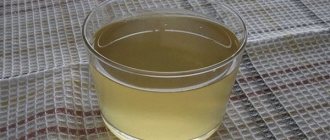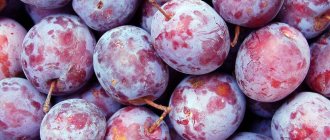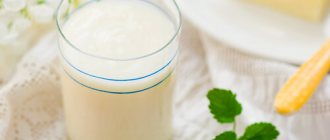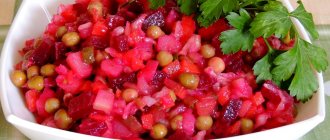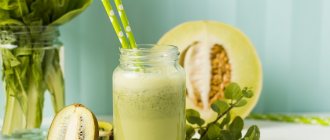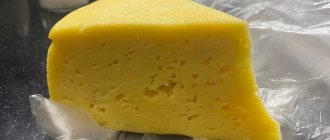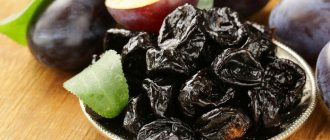The pomegranate tree grows in subtropical Asia. It has large round red fruits that reach up to 18 cm in diameter. Inside the fruit are thousands of small red grains containing useful substances. The pulp that surrounds the grains contains fiber and pomegranate juice. The taste is sweet and sour due to sugars and acids. And the bitter, astringent taste comes from the tannins in the pomegranate peel.
Only the pulp of the grains and pomegranate juice are eaten, but in some varieties the edible part can reach up to 60% of the fruit.
In places where pomegranate trees grow, their flowers are used to dye fabrics in bright red shades, as well as leaves and bark for medicinal purposes.
Pomegranate and pomegranate juice
Pomegranate is a delicious fruit that also has a healing effect on the body. But people who are diagnosed with gastritis
and other diseases of the digestive system, must follow a special diet, which is why they have to give up many foods.
Therefore, they ask whether pomegranate is allowed to be used for gastritis
. To answer this question, you will need to study the composition of the fruit and its effect on the body.
pomegranate, is it possible to have pomegranate for gastritis?
Benefits of pomegranate peels
In case of hyperacid form of gastritis, during the period of exacerbation, it is prohibited to drink pomegranate juice; you can only drink a decoction or infusion from the peel. This remedy has a beneficial effect on the stomach with high production of hydrochloric acid.
The crusts contain minerals that have a restorative effect on wounded cells. They do not contain fruit acids. Tannins and flavonoids in pomegranate peel suppress pathogenic microflora and relieve inflammation.
The astringents contained in pomegranate peel help with diseases:
- viral and parasitic intestinal infections;
- colitis;
- enterocolitis;
- dysentery.
We recommend: The benefits and use of flax seeds in the treatment of gastritis
The crusts contain substances that suppress the proliferation of pathogens on the gastric mucosa. The microflora of the stomach returns to normal, the regeneration of damaged tissues accelerates.
Peel decoction
To prepare the product, the crust is crushed. You can use dried peel. A tablespoon of crusts is poured into 200 ml of boiling water and boiled for 30 minutes. The decoction is consumed 30 minutes before meals. It is used to treat gastritis during exacerbation. The drug is taken until the symptoms of the disease disappear. During the period of remission, the decoction is drunk for prevention.
Tincture
The drink is prepared from several components in equal proportions. The infusion recipe includes a mixture of ingredients:
- pomegranate peels;
- mint;
- ginger;
- green tea.
The raw materials are ground with a coffee grinder. Pour a teaspoon of the medicinal mixture into a glass of hot water and bring to a boil. The mixture is infused for 30 minutes, wrapped in a towel. An infusion of pomegranate peels is drunk regardless of meals 3 times a day. Before use, it is recommended to add a teaspoon of honey to the product. This component will enhance the healing effect of the collection.
A decoction and infusion of fruit peels is useful for gastritis, but taking this remedy does not replace drug treatment.
Composition of pomegranate and pomegranate juice
Pomegranate juice is especially beneficial
.
It is recommended for pregnant women and people who have a lack of iron in the body. Should people suffering from gastritis
?
The exotic fruit is rich in various substances necessary for the body to function properly:
- vitamins;
- organic acids;
- amino acids;
- phytoncides;
- tannins;
- mineral elements.
This amazing fruit will speed up recovery from pathologies of the circulatory system (hypertension, tachycardia). will also help with gastritis
and other gastrointestinal diseases.
Pomegranate juice
has a beneficial effect on the activity of the whole body: restores blood circulation, increases hemoglobin, improves immunity. Due to its ability to relax the nervous system, it is recommended in stressful situations, during mental and emotional stress.
But pomegranate for gastritis
It is allowed to eat only after consulting a doctor.
Valuable composition
The pomegranate ripening season begins in October and ends in November. By winter, the period of colds, the natural immunostimulant will have time to arrive in every home. These fruits can be stored at room temperature for a month.
Pomegranates quench thirst well, increase hemoglobin and stimulate the production of red blood cells. They are also allowed for those who follow a diet, including a vegetarian one. The total calorie content is 83 kcal, and its freshly squeezed juice is 64 kcal.
Thus, it is classified as a low-fat product that is allowed when losing weight.
The pulp and juice of the fruit are rich in:
- vitamin C, which helps strengthen the immune system, protecting against stomach infections;
- vitamins B6 and B12, which have a beneficial effect on the human liver and nervous system;
- various acids - nicotinic, folic, which are indispensable for proper metabolism in our body;
- calcium, which is involved in the production of enzymes;
- magnesium, which helps cope with stress, exhibiting an antidepressant effect;
- flavonoids and tannins, which have an antimicrobial effect.
The sweet nectar of this fruit is used to treat colds: sore throat, cough. Its use is also indicated at high temperatures. In addition, the brown elixir remains a very popular anti-inflammatory agent.
For throat diseases, doctors recommend gargling with pomegranate juice diluted with boiled water.
Useful properties of pomegranate
In terms of its biologically active effects, pomegranate is superior to many other fruits. Its grains are also used in cooking, used in the fight against viral diseases, strengthening the immune system. This happens due to the fact that it contains essential vitamin C. In addition, the benefits of pomegranate include:
- improving blood composition and increasing hemoglobin;
- normalization of pressure;
- relaxation of the nervous system;
- maintaining optimal blood sugar levels.
In addition, pomegranate and a drink made from its core are prescribed to patients in the postoperative period to restore the body's strength and heal wounds, and regular consumption of juice reduces the risk of developing cancer. In addition, it is prescribed for atrophic colitis, enterocolitis and diarrhea. Its use is allowed even with diabetes.
Pomegranate juice helps to cope with dysbiosis, which is a frequent accompaniment of poor stomach function. The drink relieves the symptoms of the disease, and the patient’s condition improves. This property of the juice is explained by the presence of acids in it, which have a disinfecting effect.
When will pomegranate be beneficial?
But you still don’t always need to give up pomegranate if you have gastritis.
. Sometimes you can treat yourself to a well-ripened juicy fruit. But you should not overuse the exotic fruit, which can cause an excessive increase in gastric acidity and the development of ulcers.
can be of great benefit for gastritis
with low acidity. Therefore, you can eat it without restrictions. Fruit acid compensates for stomach acid deficiency, relieves inflammation, activates digestive function and speeds up recovery.
herbal medicine for gastritis, pomegranate for gastritis is it possible with high acidity
Helicobacter pylori infection
Helicobacter pylori is the most common bacterial
cause of gastritis.
This bacterium penetrates the stomach lining with a protective role to protect itself from immune system cells. But the lining of the stomach
becomes thinner, and
therefore stomach acid
reaches the walls of the stomach, at the level of which it causes lesions.
50-80% of the population is infected with this bacterium, but only a small percentage of them develop gastritis due to this bacterium.
Experts say the infection can be prevented through diet and smoking cessation.
Excessive use of analgesics
Frequent or excessive use of analgesics such as aspirin and ibuprofen are a risk factor for gastritis because they affect the stomach's defenses.
Excessive use of alcohol
, tobacco and illicit drugs Excessive alcohol consumption, excessive smoking and drug use irritate the lining
of the stomach and make it susceptible
to the action of stomach acid.
Stress
Severe stress caused by traumatic events increases the risk of developing acute gastritis.
Autoimmune mechanisms
Impairment of the immune system causes it to no longer recognize its own tissues and treat them as foreign bodies.
Thus, immune cells destroy the gastric mucosa. Autoimmune mechanisms are associated with certain conditions such as type 1 diabetes, vitamin B12 deficiency, and Hashimoto's disease. Old Age
Older people are more likely to develop gastritis because they have a higher risk of Helicobacter pylori infection and autoimmune diseases. Also, with age, the gastric mucosa becomes thinner.
Useful properties of pomegranate for gastritis
Pomegranate juice
rich in vitamins (especially ascorbic acid), antioxidants (juice is superior to green tea in this indicator), micro- and macroelements.
Click here - all materials about Gastritis
All portal materials about gastritis are at the link above
Thanks to the rich composition of pomegranates for gastritis
has a beneficial effect:
- cleanses and strengthens the walls of blood vessels;
- reduces the risk of heart attack and other heart diseases;
- destroys pathogenic microflora in the stomach;
- improves appetite;
- eliminates iron deficiency anemia that develops with autoimmune gastritis
; - normalizes blood glucose concentration:
- restores hormonal balance;
- prevents the formation of malignant tumors in the mammary glands.
Treatment
For gastritis, treatment begins with diet. Limit the intake of fatty, fried foods, and exclude a lot of carbohydrates. It is acceptable to eat proteins (lean meats and fish, skinned chicken), grains, and dairy products. The diet must be enriched with a large amount of vegetables and fruits, which will become a source of vitamins and microelements and cleanse the intestines of toxins. You should drink about a liter of still water per day. It is advisable not to drink strong tea and coffee, and avoid alcohol.
Drug treatment
To eliminate acne, you will need to cure the underlying disease.
If Helicobacter pylori is detected, treatment is carried out. Antibacterial drugs are prescribed according to the schedule. Among antibiotics, the choice is made on drugs of the ampicillin group and macrolides. In addition, bismuth preparations and agents that reduce stomach acidity are recommended. Treatment is carried out by a gastroenterologist under the supervision of endoscopy and tests for Helicobacter pylori. The drugs should be used for at least two weeks.
Acne due to gastritis with low acidity is treated with the use of drugs that enhance the formation of gastric juice (calcium gluconate, proserin, limontar). To improve digestion, enzyme preparations containing components of gastric juice (pepsin, panzinorm) are prescribed. With such gastritis, anemia with deficiency of folic acid and vitamin B12 often occurs; the treatment complex includes taking these vitamins.
If there is constipation, normalization of stool is necessary. In addition to a diet rich in fiber, it is recommended to take laxatives or drugs that improve gastric and intestinal motility (buscopan, duspatalin). To remove toxins and waste, activated carbon, polyfipan, enterosgel are used, and they are consumed orally. Cleansing enemas and colon hydrotherapy will help cleanse the intestines. Blood purifying procedures are recommended - plasmapheresis, hemosorption.
In addition to the main treatment, it is recommended to undergo a course of physiotherapy, correct the immune system, and take a vitamin complex.
Local therapy
Local acne treatment is carried out by a cosmetologist. You cannot squeeze out acne on your own; it can easily cause infection and damage the skin, which will increase inflammation. For minor rashes, it is sufficient to prescribe external agents in the form of lotions, creams or ointments.
Ichthyol ointment, Vishnevsky ointment, sulfur ointment, salicylic ointment have an antibacterial effect. Ointment with ichthyol does not have a very pleasant smell, but its effect occurs after just a few uses. The drug relieves skin inflammation, eliminates itching and kills germs. The composition of Vishnevsky's ointment includes castor oil, xeroform and tar. Xeroform is a good antiseptic, tar dries inflamed areas, and castor oil softens the skin. Sulfur is good for any skin diseases; when used, microbes in the skin die, including subcutaneous mites, which cause allergies and inflammation. Ointments are applied to the skin daily, for several hours, allowed at night. Treatment continues for at least a week.
On the recommendation of a doctor, antibiotic-based ointments are prescribed (tetracycline, erythromycin, synthomycin, metrohylic). Such ointments are applied twice a day for at least 7 days.
Curiosin, Skinoren, and Baziron ointments have a healing effect.
To speed up the healing of acne, physiotherapeutic treatment is carried out. Under its action, chemical processes occur in the skin that kill pathogenic microorganisms. The method is based on treatment with flashes of light. Laser therapy has an antibacterial effect and can shrink pores, creating a lifting effect. Plasmolifting is carried out by introducing blood plasma containing platelet volume. The method helps even with extensive skin lesions. Physiotherapeutic methods help the skin heal without leaving behind marks.
In severe cases of acne, antibacterial drugs are prescribed orally. Broad-spectrum antibiotics are used. It is required to be used after a preliminary analysis of the eel contents to identify a pathogenic microbe and determine sensitivity to antibiotics. Then they recommend taking one or another antibiotic. A course of treatment of at least a week to prevent the development of microbial resistance to antibiotics.
Skin peelings are used only after consultation with a competent cosmetologist. During the procedure, various chemical or fruit acids are used, which have antibacterial properties and deeply cleanse the skin.
Medicines can be used topically or by injection. This treatment method is called mesotherapy. More often it is used to achieve a cosmetic effect, but can also be prescribed in the treatment of acne as an addition to treatment.
Natural products are not inferior in effectiveness to synthetic products. Aloe juice is considered a universal antiseptic. The plant has a pronounced antibacterial effect, can dry out the skin and absorb pus from the affected area. A piece of aloe is applied to acne and boils at night, attaching them to the skin with a plaster. After several such procedures, not a trace of acne will remain. In the morning, you need to remove the bandage and let the inflamed area dry a little. In the evening, the procedure is repeated if desired.
Use chamomile and calendula decoctions slightly chilled. It is enough to wash your face with this water in the morning and evening and let the skin dry on its own. It is permissible to apply cotton swabs soaked in herbal decoctions to the pimple site. Regularly rubbing cucumber juice on acne will cleanse and whiten the skin.
Treatment of acne on the face is carried out depending on the severity of the disease. For mild cases, the amount of acne is insignificant; local folk remedies, healing ointments and local antibacterial preparations will help. For moderate lesions, it is recommended to take local antibiotics so that scars do not form at the site of the acne. In severe stages of skin damage, when the rash spreads to the body, massive damage to the face, antibiotics are prescribed orally, and detoxification therapy is carried out by administering solutions (hemodesis, rheopolyglucin).
Tomato juice is rich in vitamins and minerals. The drink removes waste and toxins and is good for the heart and blood vessels. The lycopene contained in the liquid fights carcinogens. By promoting the production of serotonin, tomato juice also relieves emotional tension and fights stress. Let's find out how the drink affects the body with gastritis.
Gastrointestinal disease
With gastritis, the gastric mucosa becomes inflamed and leads to disturbances in the body. Many foods and drinks are prohibited during an exacerbation. Is tomato juice allowed for gastritis?
The answer to the question will be ambiguous. Gastritis is a disease that requires a serious approach to nutrition. After diagnosing the severity and level of acidity, doctors prescribe a treatment regimen and menu for patients with gastritis to follow the regimen. A strict diet is indicated during periods of exacerbation. With remission, the number of products increases.
With gastritis, patients often drink juices and fresh juices. To prepare drinks, fruits and vegetables are used, which are useful for problems with the gastrointestinal tract.
The antimicrobial effect of tomato juice has a beneficial effect on the gastrointestinal tract. Choleretic and diuretic properties promote the removal of toxins and stop rotting. The drink is useful for:
- constipation;
- attacks of flatulence;
- urolithiasis.


